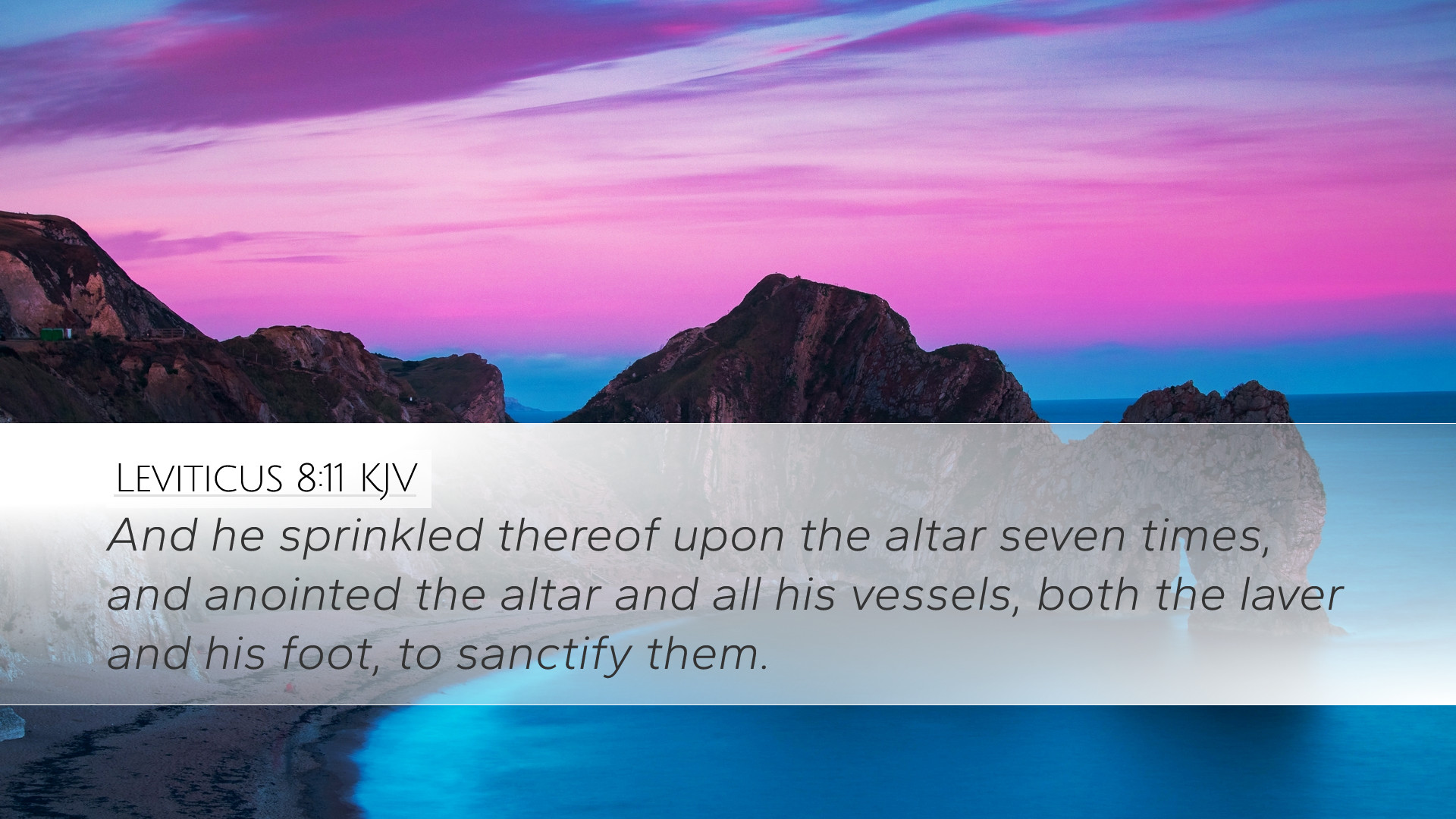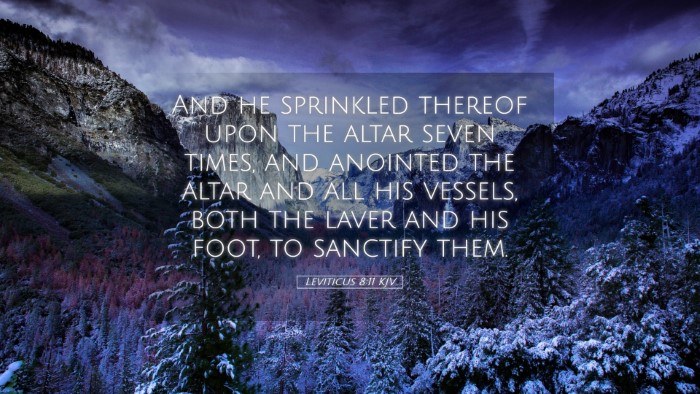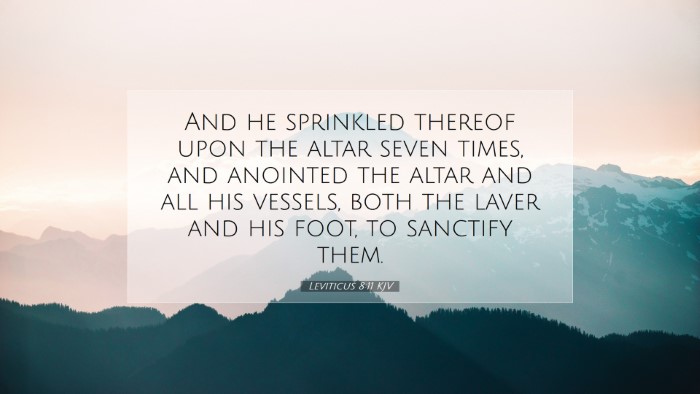Commentary on Leviticus 8:11
Leviticus 8:11 states, "And he sprinkled thereof upon the altar seven times, and anointed the altar and all his vessels, both the laver and his foot, to sanctify them." This significant verse marks a crucial moment in the ordination of Aaron and his sons as priests. It highlights the ceremonial rites essential for establishing holiness within the community of Israel's worship.
Historical Context
The book of Leviticus is primarily concerned with the laws governing the worship and conduct of the Israelites, focusing on purity and holiness. The ordination of the priests symbolizes their divinely appointed role as mediators between God and His people. This chapter outlines the rituals necessary for consecrating these leaders, emphasizing the importance of sanctity in their service.
Significance of the Number Seven
The act of sprinkling the altar seven times holds profound significance. In the biblical context, the number seven often represents completeness and perfection. Matthew Henry notes that this action serves to signify the thoroughness of the sanctification process, ensuring that nothing is left unpurified in the worship of God.
Albert Barnes further emphasizes that the seven-fold sprinkling indicates God's complete acceptance of the altar and its instruments, thereby making them suitable for sacred purposes. The ritual underscores that God desires purity in all forms of worship and that the priests, as His representatives, must themselves be sanctified.
The Process of Anointment
The anointing of the altar and its vessels not only signifies their sanctification but also symbolizes God's presence among His people. Adam Clarke comments that this anointment is akin to God's blessing, which transforms the ordinary into the holy. The vessels of service become instruments through which God's grace is mediated to Israel.
The notion of anointing is echoed throughout Scripture, where anointing signifies empowerment by the Holy Spirit. Thus, the anointment of these objects in the tabernacle serves as a foreshadowing of the greater anointing that would come through Christ, the ultimate High Priest.
The Role of the Priesthood
The priesthood, represented by Aaron and his sons, is central to the covenant community. Their consecration signifies a commitment to uphold the standards of holiness set by God. Matthew Henry points out that their role is to maintain purity, offer sacrifices, and intercede on behalf of the people. Thus, the actions in Leviticus 8:11 lay the foundation for the priest's duties in mediating the relationship between God and humanity.
Furthermore, the priest's anointing underscores their authority and responsibility to lead the people in worship. As Albert Barnes suggests, their sanctification reflects the need for all believers to aspire towards holiness in their dealings with God and others.
Theological Implications
Leviticus 8:11 challenges contemporary believers to consider the nature of holiness and its implications for worship. It reminds us that participation in divine service requires a commitment to sanctification. As outlined by Adam Clarke, rituals and practices that reflect God’s holiness must pervade the lives of those who minister to God’s people.
Lessons for Modern Worship
-
Holiness is Essential: The verse emphasizes that worship must be grounded in holiness. Paul, in 2 Corinthians 6:17, echoes this call to sanctification as community members are urged to separate themselves for God's work.
-
Leadership Responsibilities: Those in positions of church leadership are directed to lead by example, embodying lives marked by holiness, much like the priests of Israel.
-
The Importance of Ritual: While contemporary worship may differ from the Levitical practices, the underlying principle of recognizing God’s holiness in worship remains paramount.
-
Redemptive Themes: The physical act of anointing foreshadows spiritual truths about the work of Christ in sanctifying believers. As he takes on the role of the ultimate High Priest, he enables a direct and personal relationship with God, without the need for an intermediary.
Conclusion
Leviticus 8:11 encapsulates fundamental aspects of divine worship, sanctity, and priesthood. Insights gleaned from commentators such as Matthew Henry, Albert Barnes, and Adam Clarke highlight the rich theological implications for both the ancient Israelites and modern-day believers. It serves as a reminder that approaching God requires reverence, preparation, and a continual pursuit of holiness.


